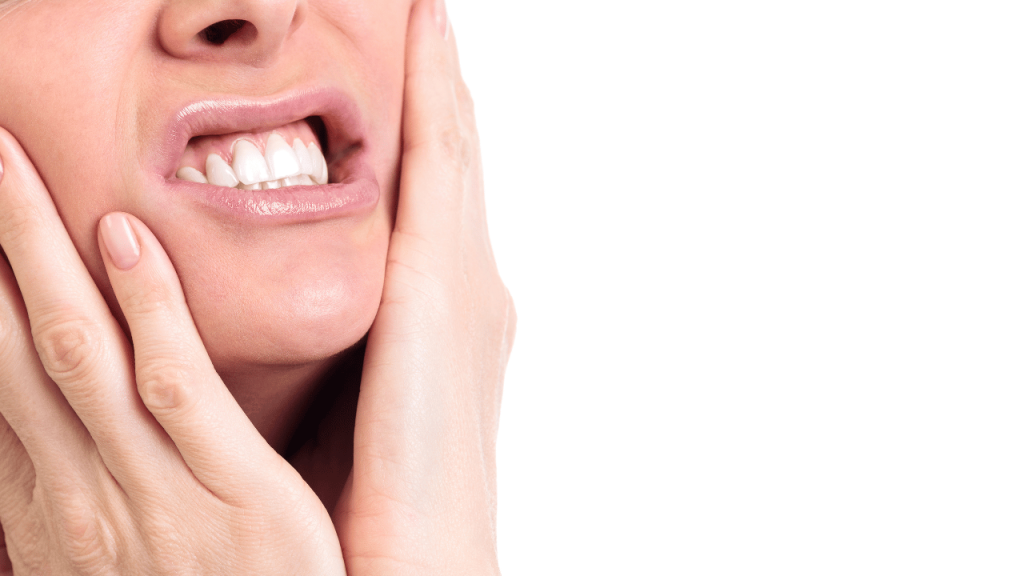
Tooth pain can be incredibly disruptive, affecting your ability to sleep, eat, and talk. It’s not just a dental issue; it can impact your overall health. Lack of sleep due to tooth pain can lead to fatigue, irritability, and difficulty concentrating and may even increase the risk of developing anxiety and depression. It’s crucial to address tooth pain promptly to prevent these issues.
As a dentist with 8 years of experience and a specialization in dental pain management, offers insights on managing severe dental pain. From pain management strategies to home remedies and natural treatments, there are many ways to alleviate tooth pain and get a good night’s sleep. In this article, we’ll explore some of the most effective ways to manage extreme tooth pain so you can get the rest you need to stay healthy and happy.
Key Takeaways
- Extreme tooth pain can significantly impact your sleep quality and overall health.
- There are many pain management strategies, home remedies, and natural treatments that can help alleviate tooth pain.
- It’s crucial to seek treatment as early as you can to avoid chronic pain and other health issues.
Pain Management Strategies
Dealing with nighttime tooth pain can be challenging. There are ways to manage the pain and get some sleep.
Use Over-The-Counter Pain Medication
One of the most effective ways to manage tooth pain at night is using over-the-counter pain medication such as ibuprofen [1], acetaminophen [2], aspirin [3], or naproxen [4]. However, it’s important to note that these medications may have side effects or interact with other medications you’re taking. Always follow the recommended dosage and consult your doctor before taking any new medication.
Use Cold Pack
Applying a cold compress to the affected area can help reduce swelling and inflammation, alleviate tooth pain, and promote better sleep. Place an ice pack or cold compress on the outside of your cheek for 15-20 minutes at a time.
Elevate Your Head
Elevating your head during sleep may decrease blood flow to your head and relieve tooth pain. Consider using an additional pillow to reduce pressure on the affected tooth. These methods can assist in managing nighttime tooth discomfort. Always seek advice from your doctor before attempting a new medication.
Diet and Oral Care
Your diet and oral care routine can play a critical role in managing extreme tooth pain that keeps you up at night. Here are a few tips to help you maintain good oral health and avoid problematic foods that can exacerbate pain and discomfort.
Avoid Problematic Foods
Certain foods can worsen tooth pain, especially if you have sensitive teeth, cavities [5], or gum disease. Acidic foods like citrus fruits and tomatoes can erode tooth enamel, while hard foods like nuts and candy can cause pain if you have a cracked tooth or exposed nerve. Additionally, sugary foods can lead to tooth decay and gum disease, resulting in pain and inflammation. It’s best to avoid these foods to manage your tooth pain effectively.
Maintain Good Oral Hygiene
It’s important to maintain good oral hygiene. Getting rid of plaque through regular brushing and flossing can help prevent tooth decay and gum disease, which are common culprits of tooth pain. Make sure to brush your teeth with fluoride toothpaste at least twice a day, floss every day, and use mouthwash. Regularly visit your dentist for checkups and cleanings. You may also want to consider using salt water or hydrogen peroxide rinses to alleviate pain and reduce inflammation.
Home Remedies and Natural Treatments
When experiencing extreme tooth pain, finding relief and getting a good night’s sleep can be challenging. While it’s always best to see a dentist for severe tooth pain, you can try a few home remedies and natural treatments to alleviate the pain.
Salt Water Rinses
To ease tooth pain:
- Try a saltwater rinse.
- Mix 1/2 teaspoon of salt in warm water, gargle, and spit.
- Repeat a few times daily, especially after meals.
Herbal Pain Relief
Remember these tips for alleviating tooth pain:
– Clove and garlic have pain-relieving properties. You can apply clove oil or chew on a whole clove and garlic oil or chew on a clove of garlic.
– Peppermint tea contains menthol, which can help numb the pain. Use it as a mouthwash or hold a warm, wet tea bag against the sore tooth.
Remember, these remedies offer temporary relief. For severe pain, it’s crucial to seek professional dental care. Your dentist can provide the most effective and long-lasting solutions. Maintain good oral hygiene and visit your dentist regularly to prevent future tooth pain.
Frequently Asked Questions
How can I alleviate severe toothache quickly when painkillers fail?
Severe toothache can be unbearable, and it can be frustrating when painkillers don’t seem to work. In such a situation, apply a cold compress to the affected area. Wrap a bag of ice in a towel and hold it against your cheek near the painful tooth. This can help to numb the area and reduce inflammation. Another option is to rinse your mouth with warm salt water. Mix half a teaspoon of salt in a glass of warm water and swish it around your mouth for a few minutes before spitting it out. This can help to reduce swelling and kill bacteria that could be causing the infection.
What are some effective home remedies for managing intense tooth pain during the night?
Tooth pain can be incredibly unbearable at night, making it difficult to sleep. However, there are some effective home remedies that you can try to manage the pain. It’s important to note that while these remedies can provide temporary relief, they may not address the underlying cause of your tooth pain. If your pain persists or worsens, it’s best to see a dentist. Elevating your head with extra pillows can reduce pressure on the affected tooth and help you sleep better. You can also apply a warm compress to the affected area or swish warm water in your mouth to soothe the pain. Clove oil, which contains natural anesthetic properties, can also help to relieve dental pain.
Why does my toothache intensify at night, and how can I soothe it?
Tooth pain may worsen at night as lying down increases blood flow to the affected area, leading to greater pressure and discomfort. It’s important to elevate your head with extra pillows, apply a cold compress, or use over-the-counter pain relievers to alleviate the pain. Additionally, you can attempt relaxation methods like deep breathing or meditation to aid in falling asleep.
What steps can I take to stop a toothache from reaching excruciating levels?
Suppose you have a toothache that is starting to become unbearable. In that case, there are some steps you can take to prevent it from becoming even worse. First, try to identify the cause of the toothache. It could be due to a cavity, gum disease, or an abscess. Once you know the reason, you can take steps to address it. For example, if you have a cavity, you may need to have it filled, or if you have an abscess, you may need antibiotics. However, it’s important to note that these steps are temporary measures and may not provide long-term relief. Seeking professional dental care is essential to address the root cause of your tooth pain and prevent it from recurring.
Are there any specific medicines recommended for extreme tooth pain when trying to sleep?
Several over-the-counter pain relievers, such as ibuprofen or acetaminophen, can be effective for managing tooth pain. However, if your tooth pain is severe, your dentist may prescribe more potent painkillers or antibiotics to address the underlying cause of the pain. It’s important to follow your dentist’s instructions carefully and not exceed the recommended dosage of any medication.
What is the ‘3-3-3 rule’ for toothache, and how can it help me manage pain?
The ‘3-3-3 rule’ is a simple technique that can help you manage toothache. First, take three over-the-counter pain relievers, such as ibuprofen or acetaminophen. Wait three hours, then rinse your mouth with warm salt water for three minutes. This can help to reduce inflammation and kill bacteria that could be causing the infection. Finally, a cold compress is applied to the affected area for three minutes. This can help to numb the area and reduce swelling.

